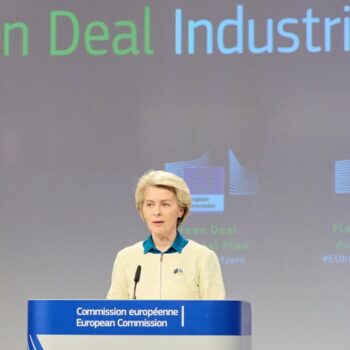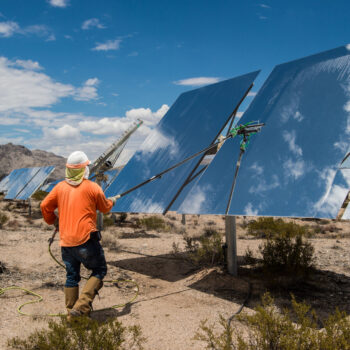Centrica, which has lost 377,000 customers in the first half of this year and seen profits from its UK residential operation fall 23 per cent year on year, is blaming its decision to impose a 12.5 per cent increase on its standard variable electricity prices on external factors, such as lower energy consumption caused by warmer than normal temperatures.
This misses the point. The fact is that home energy efficiency improvements since 2004, many of which have been funded via levies on energy bills, put downward pressure on energy costs and the volume of energy supplier profits. The typical dual fuel bill is £490 lower today than it would have been without these efficiency gains [1].
The Committee on Climate Change found earlier this year that environmental and social policy costs as well as increases in network costs, have been more than offset by energy savings [1]. Cost-effective energy efficiency improvements still available could save the average household £100s more on today’s energy bills.
What the Government could have done but did not do:
- Made energy efficiency investment a national infrastructure priority in its Infrastructure Plan, supported by long-term capital investment, low cost finance and good information to empower households to make the right choices and see them through
- Extended minimum energy performance requirements for rented properties to homes at the point of sale
- Kept the requirement for zero carbon new construction from 2016 instead of scrapping it, avoiding unnecessarily high energy bills entirely
- At least doubled funding for energy efficient retrofit of the least well off households to ensure its own fuel poverty targets could be met
Responding to the announcement, Pedro Guertler, Senior Policy Advisor at E3G [2], the independent climate change think tank, said:
The defies economic gravity. While the Government has retreated from the notion of a cap on energy bills, the review of energy costs it is going ahead with presents an opportunity to focus on investment-based infrastructure solutions to bring down energy costs for consumers, permanent solutions which can deepen the already significant savings households enjoy from energy efficiency improvements.
With energy efficient retrofits having crashed by 80% since 2012 as a result of policy decisions in the last few years [3], there is much more the Government can and must do in improve the efficiency of our housing infrastructure.
Centrica also attributed the fall in profit to the drop in customer numbers and the implementation of a pre-payment tariff cap, which came into effect in April 2017 as a result of Competition and Markets Authority remedies to protect vulnerable consumers.
The price increase comes amid a shift in Centrica’s business strategy away from traditional oil and gas sectors and large scale central power generation, towards customer-facing businesses, distributed generation and energy services [4]. Pedro Guertler adds:
Centrica’s stated reasoning for the profit drop and price rise – falling consumption against a backdrop of lower wholesale prices – highlights how their traditional business model is becoming outdated and unfit for the purpose of delivering the efficient, clean, distributed and low cost energy system that emerges if the UK tackles climate change effectively.
The price rise looks like an attempt to delay the inevitable demise of the old model and eke out shareholder profit for a little longer while Centrica restructures its business to be fit for the future. The Government must initiate a step-change in energy efficiency investment to protect consumers from these actions as well as to expedite the transformation of the energy system and the businesses involved.
Available for comment
Pedro Guertler (Senior Policy Advisor at E3G) is available for commentary – please contact him directly on +44 (0) 7867 314 004 or pedro.guertler@e3g.org
Notes to Editors
[1] CCC (2017) Energy Prices and Bills – impacts of meeting carbon budgets, The Committee on Climate
[2] E3G is an independent climate change think tank operating to accelerate the global transition to a low carbon economy. E3G specializes in climate diplomacy, climate risk, energy policy and climate finance. In 2016, E3G was ranked the number one environmental think tank in the UK by the Go To Think Tank Index, second in Europe and sixth in the World.
[3] ACE (2016) Home energy efficiency 2010-2020
[4] In June, Centrica agreed to sell its large South Humber and Langage gas-fired power stations in the UK, while it also announced the closure of the Rough gas storage facility. As part of its long-term strategy to scale-back its oil and gas operations, the company intends to sell its operations in Canada and Trinidad and Tobago, and it is planning to merge its North Sea operations with Norway-based Bayerngas Norge.


